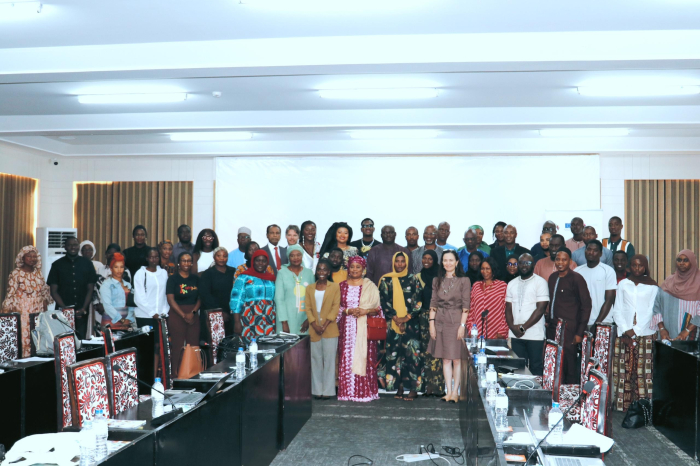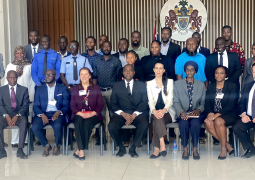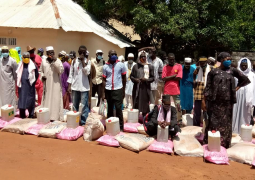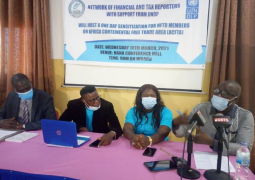
The forum, held at held at Bakadaji Hotel, attracted representatives of the United Nations, ministries, agencies, private sector leaders, youth entrepreneurs, and international delegates.
The event also witnessed the validation of ‘Made in The Gambia Strategy and Action Plan’, which seeks to address regulatory bottlenecks, and develop investment profiles for the sector.
In her opening remarks, Mrs. Amie Njie, Permanent Secretary at the Ministry of Tourism, Arts and Culture (MOTAC), painted a vivid picture of Gambian potentials.
“Imagine walking into a hotel lobby in The Gambia where the furniture is crafted by local carpenters; the walls adorned with paintings by young Gambian artists; the staff dressed in locally designed fashion and guests sipping tea and honey proudly labeled Made in The Gambia. This is not just a dream, it is a vision within our reach,” she said.
She maintained that the creativity, culture and innovation lie at the heart of Ministry’s development agenda and praised ITC for its role in shaping the creative industries through YEP.
She made reference to individuals, who continue to inspire others namely - Posh Arts, Chan Mendy, Abdourahman Bah, Tiga, Janneh Cashew, Colony of Bee, and Yaxare Tea - as proof of Gambian ingenuity.
Yusupha Keita, country rep at ITC, pointed out that their focus in aligning policy reforms with practical implementation.
The ITC Country Representative outlined three priorities: operationalising the Made in The Gambia Strategy; addressing regulatory challenges including e-commerce and intellectual property rights and creating investment profiles to attract both domestic and foreign investment.
These three areas, he added, are deeply interlinked, saying regulatory reforms cannot succeed without stakeholder consensus, and strategies will only bear fruit if implemented with commitment, investment, and ownership.
Keita thus called for constructive dialogue throughout the workshop.
Ousainou Senghore, Chief Executive Officer (CEO) of the Gambia Investment and Export Promotion Agency (GIEPA), talked about the agency’s policy agenda, making reference to the recent achievements in enterprise development and trade promotion.
“Over the past years, GIEPA has rolled out the Land for Investment initiative, championed the Local Content Bill under review at the National Assembly, and supported MSME development, enabling Gambian businesses, especially youth- and women-led enterprises, to reach international markets.”
This inclusive growth, he added, is best achieved when policymakers, the private sector, and development partners work hand in hand.
He further announced the successful validation of the National Export Strategy (NES), which aims to diversify exports, strengthen competitiveness in agriculture and services, and enhance the creative industries.
“The NES is aligned with the Green Recovery-focused National Development Plan (2023–2027), Vision 2050 and the Sustainable Development Goals (SDGs).”
Unlocking AfCFTA Opportunities
With The Gambia’s ratification of the African Continental Free Trade Area (AfCFTA) agreement, both GIEPA and ITC spoke about the vast potential for expanding intra-African trade and integrating Gambian products into continental and global value chains.




